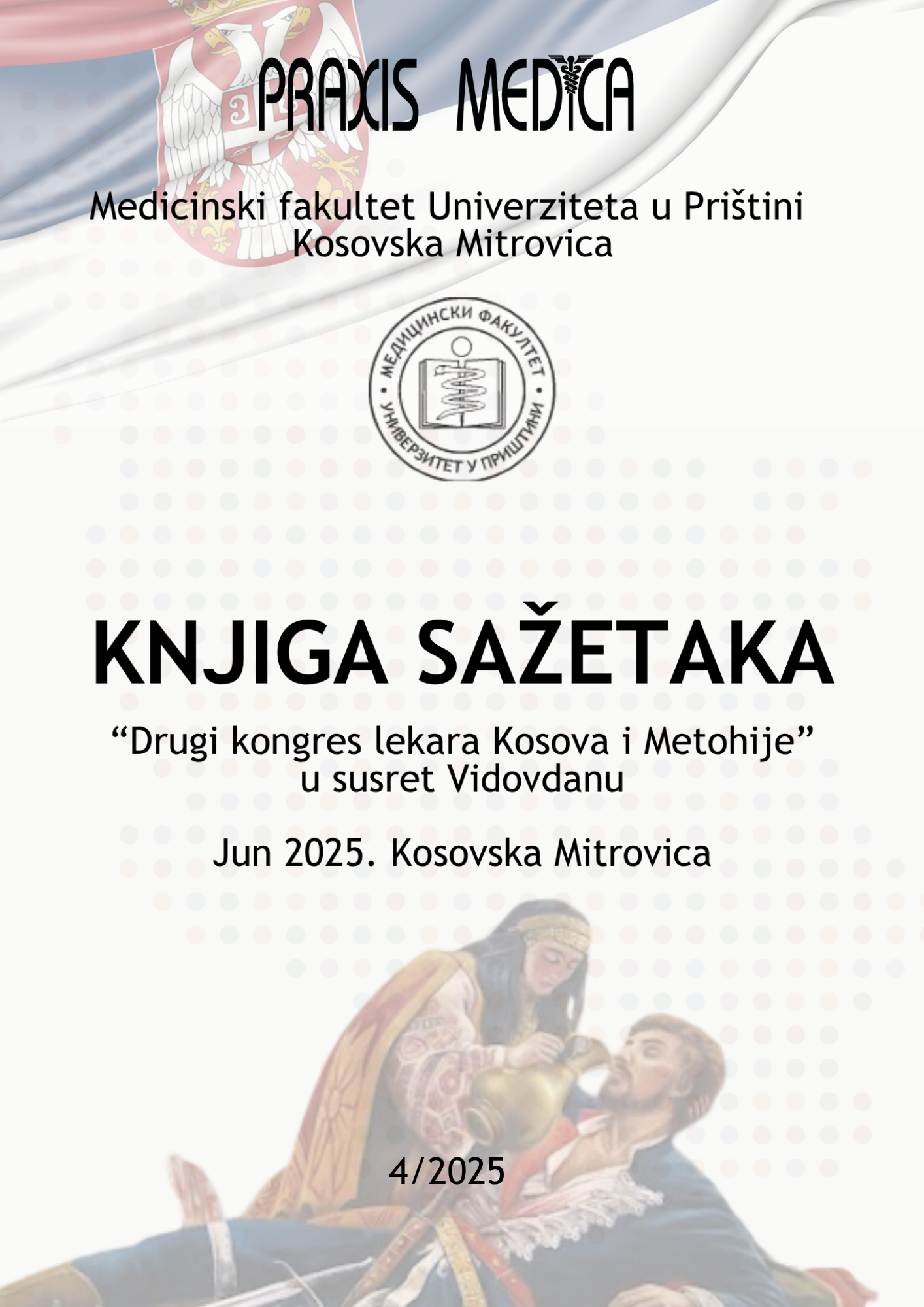
More articles from Volume 50, Issue 1, 2021
A new scoring system for Covid-19 in patients on hemodialysis: Modified Early Warning score
Analysis of the occurrence, location and treatment of laryngeal carcinoma recurrence
Orthodontic treatment of a disto-occlusion with and favorable growth pattern
Sensory processing disorders in premature infants
Examination of early adaptation of newborns small for gestational age
Citations

0
Analysis of the occurrence, location and treatment of laryngeal carcinoma recurrence
 ,
,
Abstract
Introduction: The efficacy of the applied model of laryngeal cancer treatment is measured by recurrence. Recurrence significantly reduces survival and determines the type of subsequent treatment. Objective: To determine the incidence of laryngeal cancer recurrence, the location of recurrence, and the definitive treatment of laryngeal cancer recurrence concerning different types of surgical treatments applied. Results: In the period from 2002 to 2017, 844 subjects with primary operated laryngeal squamous cell carcinoma were analyzed. Recurrence developed in 191/844 (22.6%) subjects. The mean recurrence time is 12.6 months. Supraglottic carcinoma is more likely to recur than glottic carcinoma 35.93% / 17.46%, p = 0.000. In N0 necks the recurrence rate is 14.42% and in N + necks it is 45.91, p = 0.000. In more advanced stages of the disease, the number of recurrence increases, p = 0.000. The most common area of recurrence is the neck with 45%, followed by local recurrence with 25.1%. Recurrence most often occurs in subjects with total laryngectomy and partial pharyngectomy, 50%. The most common development of regional recurrence is in the N3 category and extracapsular spread, 72.7%. The definitive treatment of recurrence usually involves radical neck dissection and total laryngectomy. Subjects with recurrence have a significantly lower three-year overall survival compared to those without recurrence, 47.6% / 92.3%, p = 0.000. Conclusion: Recurrence is expected in every fourth patient in the first 36 months following any type of surgical treatment of laryngeal carcinoma. The efficacy of treatment is directly related to recurrence. Recurrence is more common in more advanced stages of disease, extracapsular spread, and present metastases in the neck. Recurrence significantly reduces the overall survival of patients with laryngeal cancer.
Keywords
References
Citation
Copyright

This work is licensed under a Creative Commons Attribution-NonCommercial-ShareAlike 4.0 International License.
Article metrics
The statements, opinions and data contained in the journal are solely those of the individual authors and contributors and not of the publisher and the editor(s). We stay neutral with regard to jurisdictional claims in published maps and institutional affiliations.






